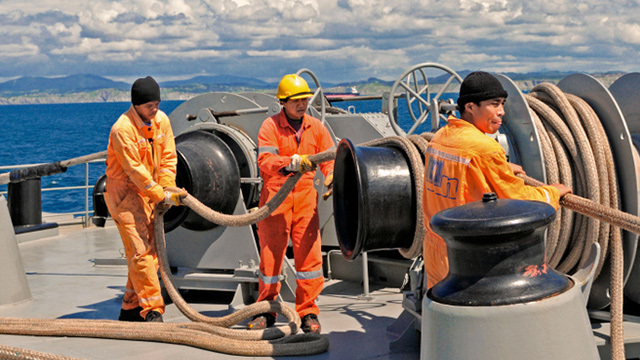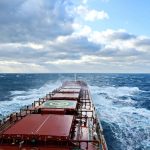The Philippines and Canada have reportedly signed a deal that has cleared the way for sailors from the Philippines to crew Canadian vessels. This is the first time ever such a move has been made.
It is an effort to resolve a major issue on Canadian-flagged vessels.
Industry and other relevant government departments have promptly informed Transport Canada of the need to find qualified seafarers to take on roles on ships as well as ashore to support their marine operations, a Transport Canada spokesperson named Hicham Ayoun mentioned in a statement to the CBC.
The reciprocal arrangement between the Philippines and Canada signed on 29 March recognizes Filipino certificates of competency for the country’s sailors — known as the Standard for Training, Certification, and Watchkeeping for Seafarers (STCW). It means Filipino sailors can work on Canadian-flagged ships with their work visa and without first securing the status of permanent residency.
Bruce Burrows, the CEO and president of the Chamber of Marine Commerce, mentioned that they have been requesting Transport Canada to help bring in additional foreign employees to work on their ships, and these are regular seamen and officers as they are faced with an acute dearth of personnel in the Canadian marine industry.
This is lucrative for ship owners
The chamber represents St. Lawrence Seaway and Great Lakes shipping interests.
Burrows strongly believes that Filipinos could be on board later in 2023.
This is lucrative for Canadian ship owners, and for the North American supply chain as it is going to make the supply chain’s marine-centric part more reliable, he added.
The Philippine-related arrangement was announced in public earlier in April via a Transport Canada ship safety bulletin.
The Canadian Coast Guard is looking at Filipino, as well as other foreign seafarers. However, Canada has made reciprocal arrangements with Norway, Ukraine, Australia, France, Georgia, and the UK.
Bud Streeter, who is a long-time industry veteran, has to say that this is vital for Canadian shippers as well as Filipinos. Among his roles, Streeter is well-known as a ship welfare visitor associated with the Mission to Seafarers.
There have been several questions about if the Philippine competency certification duly meets standards set by the International Maritime Organization, a United Nations ship safety agency.
Philippine certification recognized
An audit conducted by the European Maritime Safety Agency upheld non-compliance with the STCW regulations. However, the European agency did accept some assertions from the Philippines that it had undertaken corrective actions and declared that it would recognize the Philippine certification.
The Philippines stays on the IMO’s list of nations that satisfy the standards.
Burrows mentioned that Canada wouldn’t have been able to enter the arrangement unless it was totally comfortable with the competency levels. Shippers, however, have zero concerns.
Source: Marine Insight




